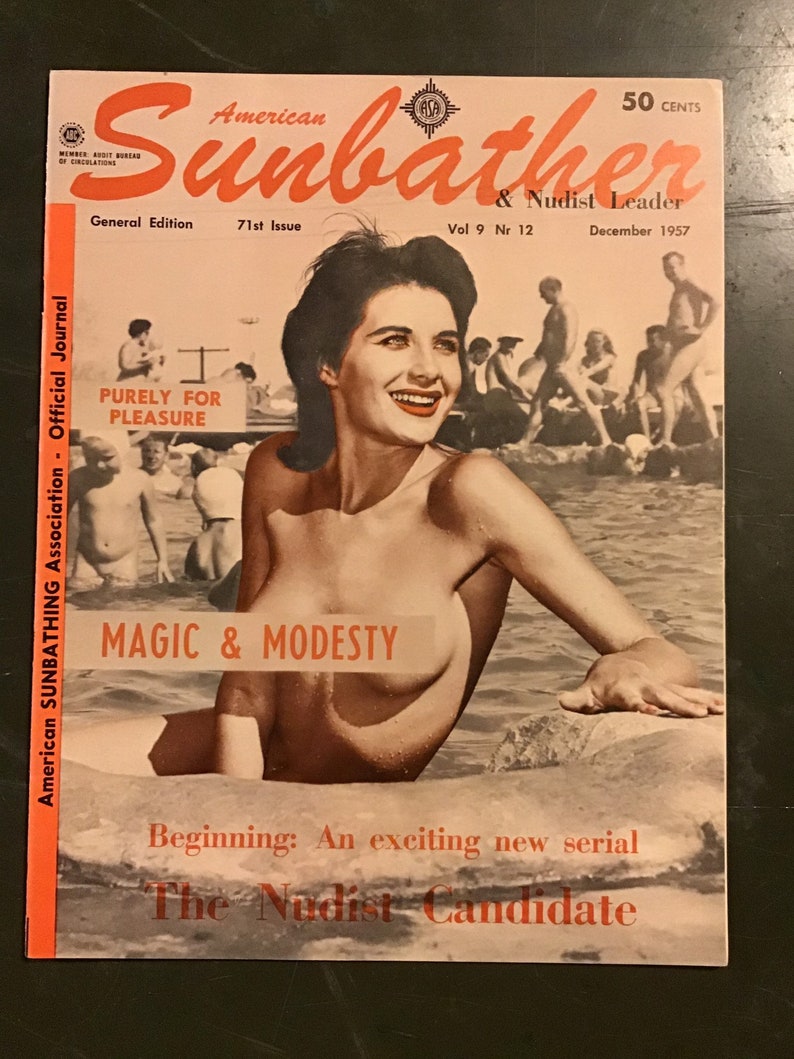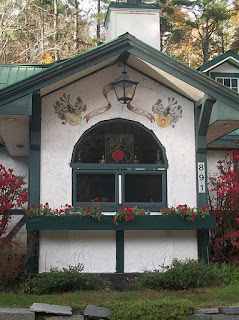Long and wandering, I fear. I'll break it into parts.
I started at the house that was my grandparents from 1934-70, where my mother grew up. It is only 50' or so from Route 28, which runs through Manchester as Maple St.


That's my mom in the first picture, and her sister in the second, my Aunt Cynthia. My estimate is that these were spring of 1946, when they would have been 16 and 17, respectively - both taken at 218 Blodget. They had a brother as well, but somehow his picture got taken far less frequently, at least in my collection. He's a nice-enough looking man, but this level of competition is too much for anyone.
As I have previously noted, I didn't get these genes. Or rather, my brother and I got some of them, but somehow didn't do as well with them as our cousins.
Maple Street is more shady now, more elegant. It was a borderland then between a better part of town and the best part of town. My grandfather was a CPA - we think the first in the state - and his wife the socially aspiring sort. She would have preferred to be at least four blocks north, and an equal number west to qualify as true north end.
Route 28 merges with Rte 3, the Daniel Webster Highway coming out of Manchester to the north. From 1930 to 1950 it built up slowly, but after the war, car dealerships, restaurants, supermarkets, and all the trimmings sprang up. People think of NH's population exploding in the 1970's, but it was steady increase from 1950-2000, with just a steeper slope in the middle.
Oh yeah, this is one of several places that my mother almost died - my brother merely wounded and hospitalised for a week in the crash. So for the second time, someone just came and picked me up and told me I was living at my grandparents for awhile. I don't know if I was given much detail - I don't remember worrying, though my mother was away for weeks. Well, hospitalizations were longer then.
Just over the line in Hooksett there used to be a meat market, with a large cow on top of it. They had a delivery van with a life-sized cow wired to the top as well, and a sign that said "Home of Sir Loin." People must have thought those were quite the advertisements in those days, because the numbered routes were strewn with them, at least out here in the east. Forty-foot concrete cacti, Leaning Towers of Pizza, whales, pirates, chickens. Forget
Motel of The Mysteries. What would archaeologists have made of this?
We still have leftovers of this in McDonald's golden arches and White Castle burgers.

Yes, children, really. It's not just a logo. We didn't have logos then, because we were too poor.
I can't find a picture of Hooksett's Sir Loin, unfortunately. Though Ben and I saw something like it on a van in Michigan a decade ago.
And a giant red slipper outside the Wizard of Oz Museum in Indiana. So midwesterners still go in for this sort of thing, maybe.
In the 30's it would have been rural. By 1960 the road would have had the usual collection of Howard Johnsons, Pic-N-Save markets, and used car dealerships that must have been seeded when they widened the number roads. Nothing much to comment on until we get just south of Suncook, where the old narrow road heads on into town, past the large stone lion, and the new 1958 route branches right, wide and straight through the forest. Not much got built along there until later. But there was a boat sales place, (Something) Marina. And amazingly cool to my brother and I in the 60's, there was a fuselage of a crashed jet in a field beside the place. We of course figured the jet had crashed there and been left. (Just missed the fence and those ski-boats - whew!) Or that someone they knew had died in it so they were given the hunk of twisted metal as a memento. A few years later we heard the real story from my mother's boyfriend, and though the story was boring, we were excited.
Bob knew the guy who had the jet fuselage. Wow! Amazingly cool! Children are impressed by such things.
It would have been hard for Bob
not to know the guy. He also lived in Hooksett, which wasn't so populous. Bob's family owned Indian Head Athletics and he was always skiing or boating or otherwise using first-class equipment. He had very cool dogs - Siberian Huskies; he had a modernistic house; he knew Congressman Wyman well, even though it was we who shared the name; and best of all, he owned an Austin Healey. A lot like this one, I think.

Then he fell out of the picture in early 1966 and my mother married some other guy six months later, who was 12 years older than her and didn't seem anywhere near as cool. I looked Bob up a few years ago, and it seems my mother made the right choice. A fun and entertaining guy, but pretty clearly self-centered with too much teenager in him, even at 70.
Come to think of it, other than knowing the guy with the jet, Bob had
no real connection to Route 28 whatsoever. He was strictly a Route 3, 93, and 95 guy. So in retrospect, we can see that it never would have worked. Ken, the guy she did marry, had no previous Route 28 credentials but adjusted beautifully. Excelled at it, really. His finest hour.
Backwards in time.
There are two incidents which must hold some mildly embarrassing story which I don't know. Long after they had divorced, when I was an adult and my parents had not spoken in years, each of them started into a story about Aunt Marian's camp that looked to be amusing, then just fizzled. Both of them were extremely adept at seamless switches in conversation - my mother, her mother and her aunts were simply stunning at it - but then, I was brought up by them, so I had some skill at noting the merest flicker of change in tone myself. I don't think I would have recalled the incident where my mother quickly diverted had my father not done so on the same story at a similar point a decade later. It jogged the memory:
Here now. We've heard that before. What was it? Both thought it was going to be a fun story to tell. Each launched into the opening:
my father was a new Sigma Chi at UNH, where they met. As part of his hazing, he was taken on a ride - hooded and intentionally confused by the brothers - and dumped off in a dark place at night.
But he had craftily been ready and hidden a $5 bill in his shoe. (I suspect the servicemen on the GI Bill were a good deal more resourceful than the pledges the fraternities were previously used to.) And as they drove off with him left by the side of the road he realised where he was. Near Route 28 and Aunt Marian's camp in Center Barnstead. And so he...
Went to the camp and
er, washed up, and hitched quickly back to Durham and went home to Westford for the weekend, making the fraternity brothers nervous that he was really gone and in danger... according to my Dad.
Didn't go to the camp because it was closed up but uh, it was still easier to get back to UNH than it would have been and he bragged about it to her friends all weekend...according to my Mom.
We know memory, of course, that both things could be approximately true and no one fibbing, just remembering differently. I put an
er and an
uh in there to mark a seam, but they weren't really there. (Both of them were far smoother than that.) I don't know how I can signal to you that there was a bump in the road both times.
Clearly it is something large enough to not want to tell me, even as an adult. But small enough that the entire area of conversation was not strewn with mines three kilometers out in every direction - which, given my father's actions, there were plenty of in my growing up. Whatever this is, it's likely not just one additional piece, because they would have seen that coming easily. Rather, it is some incident which would lead to some other question or speculation, so they veered away.
Sex, alcohol, or accidental destruction of property. Those are my guesses. Exactly what you might remember as entertaining, but suddenly decide not to tell your children.
And now forward in time.
I should have mentioned that from Suncook on, there was an additional growing worry. I had driven this road many times in the last two years of my mother's life, only occasionally since then, and not beyond Wolfeboro Center. The last time there had been my mother's funeral. The time before that, the night she died. The fifty times before that, all visits to watch her die. I am chilly and heartless about most things, but I wondered if this would be different, especially when hungry, grouchy, tired, with the sun creeping down.
Nah. I am still chilly and heartless in regards to the past. I now weep easily considering the smallest troubles of my children and granddaughters. But looking back? Meh. Visiting the past is a fun place to visit and think about. Doubtless I am suppressing some deep feelings and in denial of something-or-other. Which is fine, actually. The idea that it is all going to come and explode on me some day troubles me not. Life isn't really like that, just movies. Oh, and plays by Scandinavians.
I was irritated that I had forgotten that Cricket Hill Rd doesn't go through. I passed another place that my mother went over an embankment and almost died. I went to the house on Maplewood, looked at it and turned around. Not a trace of moisture.













